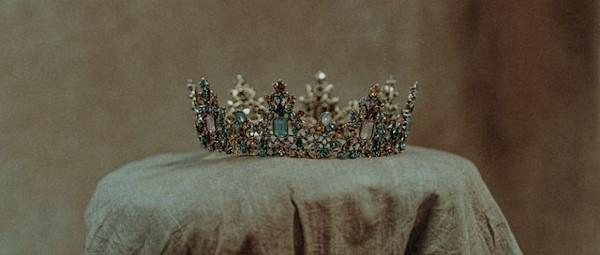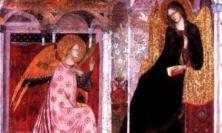Through the lens of an encounter with the then Prince of Wales, Michael Barnes SJ considers how the place of faith in a secular society under the reign of the late Queen Elizabeth II will be maintained by a new King who has spoken of the value he places on faith.
If I remember rightly, the first time I saw the Queen was in a motorcade making stately progress through south London. It was probably a short time after the coronation, and I was adorned in a grey cap and waving a tiny union jack as the limos rolled past. Years later, I got a bit closer at a reception for faith leaders at Buckingham Palace to mark the Golden Jubilee. According to protocol, Her Majesty did not reply to the address given by the Archbishop of Canterbury on behalf of her guests. Instead, she went on a walkabout – or rather, disappeared into a sea of priests, imams and monks. I had not realised how tiny she was.
In 2010, I was living in Southall at the time of the papal visit to the UK. I was at the dentist’s, watching the news feed on the TV in the waiting room. It was profoundly moving to witness the meeting of Pope Benedict and Queen Elizabeth at Holyrood. Greeting guests, the great, the good and the not so good, was the sort of thing she did with immense graciousness. The sound was off so I had little sense of what the commentators were saying. Then suddenly the picture shifted to a face I knew, a Sikh leader with a reputation for imaginative social and inter-faith initiatives. Immediately the waiting room woke up and everyone listened to what he had to say. The interviewer made some facile remark about the problem of so many faiths in a secular nation like the UK. The Sikh stroked his long, wispy beard and smiled, saying something to the effect that there should be no competition among religions, and as long as we had a monarch who was committed to her faith and prepared to talk to everyone there really wasn’t a problem.
The question is, of course, a lot more complex than that – as recently awakened memories of the infamous ‘Rushdie Affair’ remind us. But the Sikh’s point about the place of the monarch in a pluralist, multicultural society is not to be dismissed as an empty bit of religious romance. I have only met King Charles III once but I was impressed by the seriousness with which he spoke about the importance of faith. I was teaching in an inter-faith centre in north London. The then Prince of Wales was due to visit a Muslim school next door to us. We were an added extra and there was no guarantee he would stay for more than a few minutes. Along with one of my students I was set at the end of a ‘receiving line’ and had duly rehearsed a few words on teaching inter-faith relations. When he reached us, he had clearly got a bit tired of picking up on other people’s conversational gambits. He looked out of the window, pointed to the school, and said: ‘you know, what they’re doing there is quite remarkable’. That was the beginning of a very different conversation, about faith and culture and religious values. On the way out, the director thanked the prince for coming and asked tentatively if he had a word or two to offer. Fifteen very spontaneous minutes later he was on his way. It was hardly a careful manifesto for the place of faith in a secular society, but we were all impressed by his articulate grip on the issues, and the freedom and sincerity with which he spoke. He also has a lovely sense of humour.
From being a five-year-old as his mother’s motorcade flashed by, I am now almost exactly the same age as the new King. We have both lived through the same seismic political and cultural changes that have transformed our society. King Charles is the same person as the Prince of Wales; he brings his own life-story, and record of intervention in the public arena, with him into his role as Head of State. He will need to be discreet and careful in what he says, and will need to work within the norms and traditional procedures that mark our unwritten constitution, as the late Queen did so brilliantly. But he will not be an empty figurehead. When a Head of State dies, especially one so much loved and revered, we realise in a profound way that we are all mortal, all subject to frailty and weakness, all ordinary human beings taken back into the single great mystery of life in God.
Queen Elizabeth had her own particular take on that mystery. As her reign went on – seemingly forever – she kept coming back in one Christmas message after another to her devout Christian faith. King Charles’s words, on informal as much as formal occasions, will be scrutinised for their theological precision as much as for their political implications. He will undoubtedly struggle to make himself understood. But he is not his mother. The late Queen was a wonderful example of the power of simple virtues – hard work and personal dignity among them – in the face of cynicism and hopelessness. The new King inherits the good will she generated towards the monarchy. But he comes from a different generation, one which has grown up in a post-modern world characterised not just by culture wars and pluralism of all kinds but by a more insidious crisis about the future of democracy and the rule of law that the West has taken for granted for so long. It’s an obvious point to make, that he is human like all of us, with a mind of his own and very human reactions to what goes on around him. He will speak that mind – and that means accepting a monarch who takes risks within the public arena, although his mother did set the occasional example in that regard. I write this from Dublin, where, during her 2011 state visit to Ireland, she addressed the guests at a state dinner in Gaelic, having apparently been advised not to do so. She delivered her lines flawlessly and, contrary to the fears of her advisers, endeared herself to those gathered and the Irish public, who largely remember the visit with great admiration.
The late Queen acted as an unchanging and ever-reliable rock. Charles brings his own history, and he also brings his own virtues, amongst them an undoubted ability to open up and sustain conversations about matters of ultimate value. Different reigns, different virtues.
Michael Barnes SJ is a Jesuit of the British Province who has taught and written extensively on interreligious relations.






